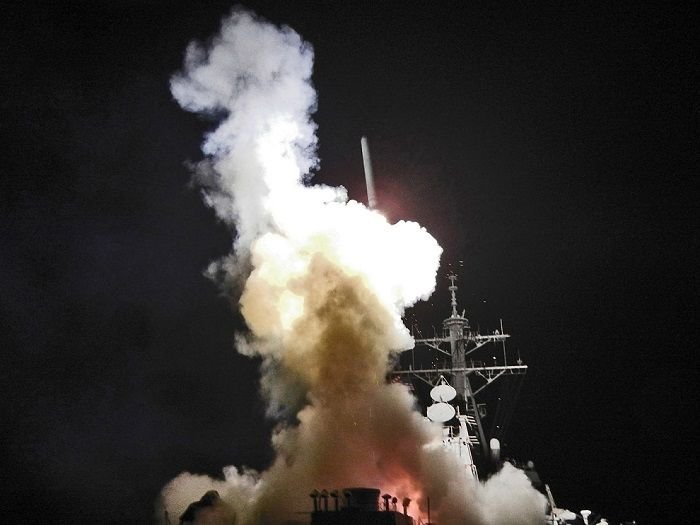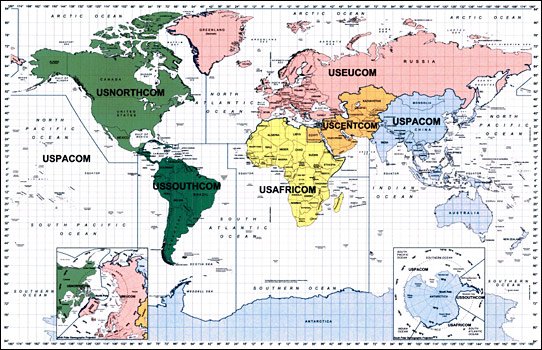
By Steven MacMillan/Steemit : 8 March, 2018
Africa is set to become a major theatre of war in the near future, as the scale of US military involvement will continue to increase on the resource-rich continent.
In October of last year, the general public was given a glimpse into the degree to which US forces are operational in Africa, when four US soldiers were killed in Niger after being ambushed by militants whilst on a training mission with Nigerien troops.
This incident came only a few months after China opened its first overseas military base on the African continent, setting up a naval base in Djibouti, a strategically important country in the Horn of Africa. It is no coincidence that the US has increased its military footprint on the continent in line with Africa becoming increasingly important for China, both strategically and economically.
Despite the US being active in Africa for years now, US military presence is only going to increase in the months and years to come. The 2011 war in Libya was only the tip of the iceberg as far as military engagement is concerned.
In fact, the hawkish US Senator, Lindsay Graham, said last October that Africa was going to increasingly become a theatre in the war on terrorism, with the Senator warning the American public that the US military will conduct “more actions in Africa.”
Although the Middle East will continue to be a region plagued by warfare (especially if the US is reckless enough to launch a full-scale attack on Iran), there will be somewhat of a shift in focus from the Middle East to Africa.
A Decade of AFRICOM
Since 9/11, Africa has gone from being regarded by the US as a region that is of relatively little strategic value to Washington, to being of such importance that in 2007, President George W. Bush announced that the US was going to create a specific command for the entire African continent; namely, US Africa Command (AFRICOM).
Prior to the establishment of AFRICOM, US operations in Africa were split between three US commands: US European Command (EUCOM), US Central Command (CENTCOM) and US Pacific Command (PACOM). AFRICOM operations began in 2007, with the command becoming fully operational by October 2008. The official mission statement of AFRICOM states that:
“U.S. Africa Command, with partners, disrupts and neutralizes transnational threats, protects U.S. personnel and facilities, prevents and mitigates conflict, and builds African partner defense capability and capacity in order to promote regional security, stability and prosperity.”
With Pentagonspeak out of the way, we can now move past the public relations department of the US military and onto discussing the reality of AFRICOM’s inception and role.
AFRICOM: A Neoconservative Imperial Project
AFRICOM was created during the George W. Bush administration, an administration that was completely stacked with neoconservative actors. One of the key meetings that helped bring AFRICOM into reality was convened by then Secretary of Defense, Donald Rumsfeld, in 2006. As Stephanie Hanson wrote in a 2007 article on AFRICOM for the Council on Foreign Relations (CFR):
“Former Secretary of Defense, Donald Rumsfeld, convened a planning team for such a command in mid-2006, and in December, President Bush authorized its creation.”
Rumsfeld of course was heavily involved with the neoconservative group the Project for the New American Century (PNAC), which stated in its September 2000 report, titled: ‘Rebuilding America’s Defenses – Strategy, Forces and Resources for a New Century,’ that US grand strategy should aim to maintain US supremacy in the world through having a “globally preeminent military capability:”
“At present, the United States faces no global rival. America’s grand strategy should aim to preserve and extend this advantageous position as far into the future as possible… Preserving the desirable strategic situation in which the United States now finds itself requires a globally preeminent military capability both today and in the future” (p. i).
It is clear that the establishment of AFRICOM was part of the grand strategy outlined by the neoconservatives in 2000 to maintain US supremacy in the world, through having a “globally preeminent military capability.” Hence, one aspect of AFRICOM is to project US power in Africa and compete with the growing influence of China on the continent. Another important reason for AFRICOM is to help secure access to oil and other resources that are so abundant. As Hanson wrote in her 2007 article:
“Many of the experts who heralded the command’s creation seem to validate African concerns. Writing in World Defense Review, J. Peter Pham, director of the Nelson Institute for International and Public Affairs, calls AFRICOM’s creation ‘long overdue’ in light of U.S. dependence on Africa’s oil, its concern over radical Islamist groups targeting the region, and the continent’s identity as ‘an arena for intense diplomatic competition with other states with global ambitions, like China.’ Others note that AFRICOM will help the United States secure vital sea lanes.”
“Terrorist Image-Making” to Justify AFRICOM
The threat of terrorism is once again being used by the US and wider Western war machine to justify a major military footprint in Africa. This issue was addressed by Horace G. Campbell, a Professor of African American Studies and Political Science at Syracuse University, in a 2008 article, titled: ‘Remilitarisation of African societies: Analysis of the planning behind proposed US Africa Command.’
In the article, Campbell (2008: 13 & 30) further details the fact that many leading neoconservatives were instrumental in creating AFRICOM, before moving on to argue that the threat of terrorism has often been exaggerated, and even fabricated, in order to justify a US military presence on the continent. Africa became the target of what Campbell (2008: 7) calls “terrorist image-making,” designed to create the perception that Africa was a major source of global instability and terrorism. This perception management campaign included subcontracting scholars within African studies departments to write books and editorials which placed significant emphasis on the threat of terrorism from Africa.
The Current State of Affairs
Just this year so far, US forces have conducted numerous airstrikes in Somalia under the pretext of targeting al-Shabaab militants, with the number of covert, classified missions on the continent no doubt much higher. For example, there was indications that AFRICOM was involved in engineering a military coup attempt in Burkina Faso back in 2015, designed to protect US military bases in the country.
The situation in Africa is another demonstration of how the nonsensical ‘War of Terror’ is a perfect justification for perpetual warfare. The US can essentially conduct military operations in any region of the world, and as long as they issue a press release stating that it is in the name of countering terrorism or fighting extremism, there is virtually no outrage or legal ramifications for their actions. Much of the world has become numb to the belligerence of the US and her allies.
Africa is set to become a major new theatre of war in the near future, starting a new phase in the neoconservative strategy of perennial warfare.
Steven MacMillan is a freelance writer and editor of The Analyst Report.
Follow The Analyst Report on Steemit @smacmillan
Photo Credits 1: U.S. Navy photo by Roderick Eubanks
Photo Credits 2: US DOD
Follow The Analyst Report on Twitter @Analyst_Report